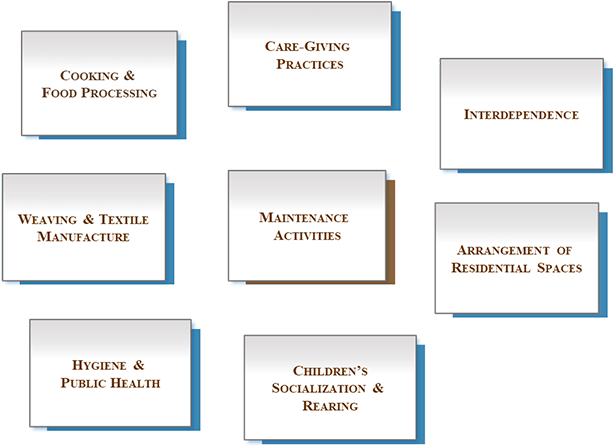Aberigua Project
Bridging People, Sharing History
Our name
ABERIGUA means “investigate” in CHamoru.
“Averigua” with a “v”, means “find out” in Spanish. This play on words makes for a uniquely identifiable and effective acronym for our project Archaeology of Iberian Colonialism in Guåhån (Guam) and the Manislan Mariånas (Mariana Islands)!
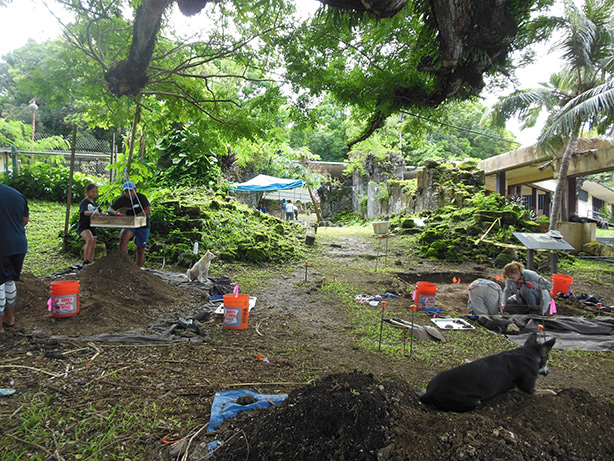
Excavations 2017 in San Dionisio
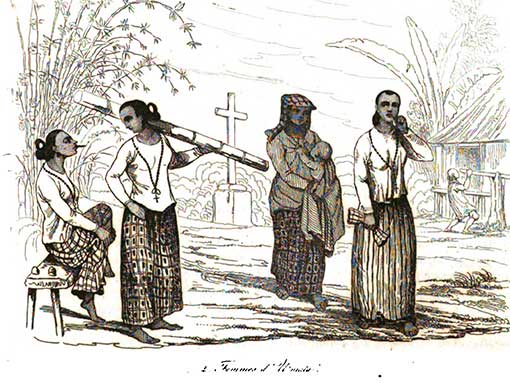
“Femmes d’Umata”. Dumont d’Urville, 1835
Our goal
ABERIGUA is aimed at better understanding the case-specific details of colonial strategies implemented during the colonization of Guåhån and the Manislan Mariånas, and subsequent CHamorou native responses – including processes of cultural change and continuity. We are particularly interested in investigating how gender in constructed in situations of colonial interaction and domination. The project is inspired by feminist and anti-, post- and de-colonial critiques to Modern colonialism and the practice of archaeology itself.
Our methods
To the previous goal, ABERIGUA converges different sources of information like archival textual sources, archaeological material culture, historic illustrations, maps, photographs, and oral history. We love documents and material culture in equal parts.
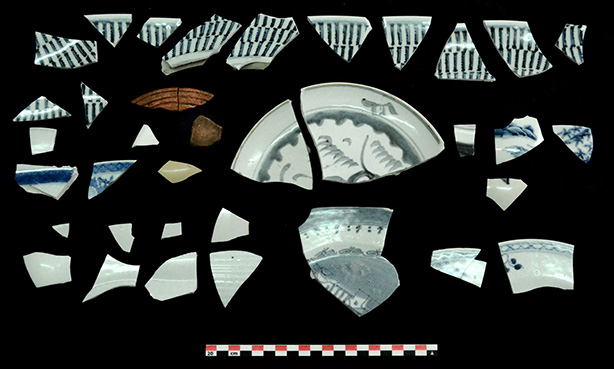
Ceramic materials from Palasyo
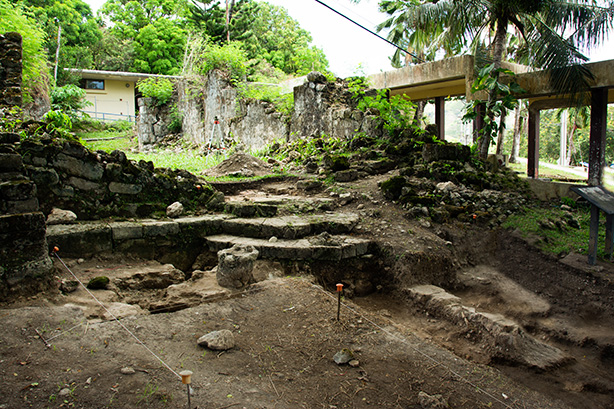
General view of excavations 2019 in San Dionisio
Archaeological fieldwork is key in our project.
At the moment, we have been excavating at the colonial church and cemetery of San Dionisio, at Humåtak, as a first step in a broader effort to include different enclaves from the colonial period and the immediately preceding Latte period.
Maintenance Activities
Our research places stress on the analysis of everyday life and maintenance activities, a set of routine and quotidian tasks that are essential to sustain and reproduce social life. They cement the group’s cohesion through strengthening of basic bonds. Their structuring role guarantees the recurrence of the group’s activities, and/or channeling changes into new recurrence patterns that reinstate basic stability. Our PhD candidates consider maintenance activities fundamental in their research.
